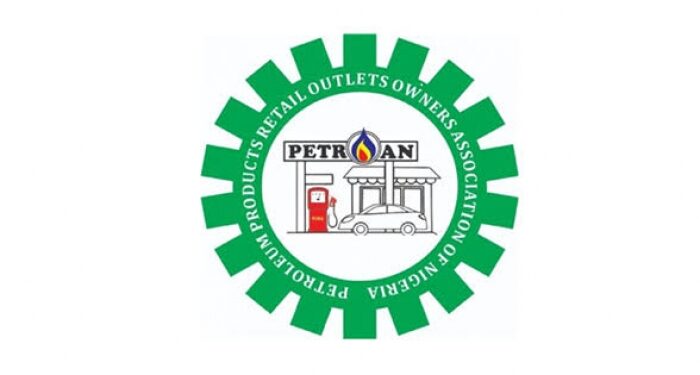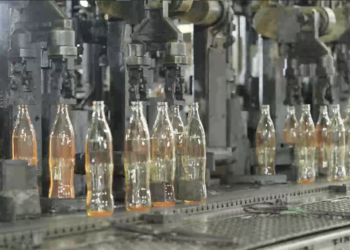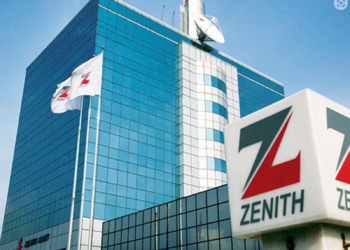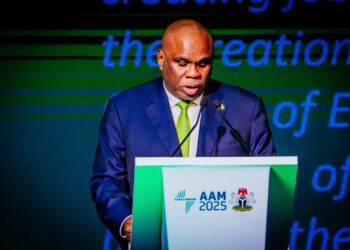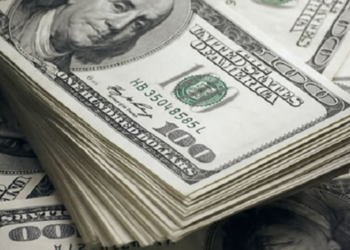Oil marketers under the aegis of the Petroleum Products Retail Outlets Owners Association of Nigeria (PETROAN) have warned of the danger of creating monopoly with the newly introduced 15% import duty on petrol and diesel if local refineries are not properly checked by regulators.
They called on regulatory agencies like the Nigerian Midstream and Downstream Petroleum Regulatory Agency (NMDPRA) to be on red alert against monopoly, as not regulating the sector properly might harm the market.
According to a press statement by the National Public Relations Officer (PRO) of PETROAN, Dr Joseph Obele, this was made known by the National President of the association, Dr Billy Harry, on Friday, October 31, 2025.
Billy Harry, who was speaking during a courtesy visit to the new Pro-Chancellor and Chairman of the Governing Council of Ignatius Ajuru University of Education, Port Harcourt, Dr Chinyere Igwe, reiterated that the benefits of this policy will outweigh the potential disadvantages.
He pointed out that importers of petroleum products, which were a price check mechanism against profiteering, will be out of business if not properly managed.
Dr Obele, in the statement, said, ‘’Dr. Billy Harry emphasized that the benefits of this policy will outweigh the potential disadvantages. However, he called on regulatory agencies such as the Nigerian Midstream and Downstream Petroleum Regulatory Authority (NMDPRA) to be on red alert against monopoly, warning that if local refineries are not properly regulated, it could lead to a monopoly that might harm the market. He noted that importers of petroleum products, which were a price check mechanism against profiteering, will be out of business if not properly managed. Instead, he urged importers of petroleum products to look inwards towards patronizing local refineries.’’
Benefits of the policy
Obele stated that Billy Harry praised President Bola Tinubu for approving a 15% import duty on petrol and diesel, with the policy aiming to protect domestic refineries, stabilize the downstream oil market, and promote energy security.
The statement partly reads, ‘’Billy Harry highlighted the benefits of the approval, including increased local refining capacity, improved price stability, and enhanced energy security. He noted that this policy will boost local refining, promote economic growth, create more job opportunities, and create a level playing field for domestic refineries.
‘’The benefits of this policy include increased local refining capacity, reduced dependence on imported fuel, improved price stability, enhanced energy security, boost to local economy, benefits to foreign reserves, benefits to the Naira gaining strength, and attracting investors. The potential disadvantages include potential price increase, loss of jobs on the side of importing firms, and short-term challenges.’’
Timely action by NNPC
Also, PETROAN in the statement called on the Nigerian National Petroleum Company Limited (NNPC) to ensure the availability of crude oil to local refineries, as this is crucial for the success of the policy.
Obele stated, ‘’The new policy has also prompted NNPC to seek private partners in managing the four nation-owned refineries. According to Bayo Ojulari, NNPC’s Group Chief Executive Officer, the company is looking for technical equity partners to help revive its long-dormant refineries, which have yet to resume operations despite years of heavy investment. This move is seen as crucial to Nigeria’s long-term energy security and could potentially transform the country from a fuel importer to a net exporter.
‘’Dr. Billy Harry also calls on NNPC to complete the partnership agreement very soon and start production at Nigeria’s refineries before December to avert any form of fuel scarcity or price hike during the Yuletide season. This timely action will help ensure a stable supply of petroleum products and support the country’s economic growth.’’
What you should know
The approval was contained in a letter dated October 21, 2025, where Damilotun Aderemi, the Private Secretary to the President, conveyed the directive to the Federal Inland Revenue Service (FIRS) and the Nigerian Midstream and Downstream Petroleum Regulatory Authority (NMDPRA).
According to the letter, the decision followed a request by the FIRS seeking the president’s consent to apply a 15 percent duty on the cost, insurance, and freight (CIF) value of imported petrol and diesel to align import costs with domestic realities.
In its reaction, the presidency had explained that the recently introduced policy was designed to make these imported products less competitive and encourage local refining.
It stated that the policy will also boost domestic capacity and ensure that Nigeria’s oil wealth translates directly into national prosperity.

